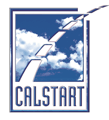New Survey: Majority of auto suppliers disagree with rollback of federal clean cars standards, want stronger post-2026 targets
Majority agree that 100% ZEV targets are viable, feasible and will lead to job growth
For Immediate Release
For More Information Contact:
Christina Heartquist
[email protected]
PASADENA, Calif. – The third installment of a Tier-1 U.S. automotive supplier survey again reveals that strong clean car standards that save drivers money and reduce pollution are also good for investment and jobs in the supplier industry, which employs almost three times more Americans than the automakers themselves.*
“Despite the pandemic and economic downturn, the overall finding of our biennial surveys, conducted since 2016, remains consistent: auto suppliers agree that enacting strong policies that support advanced, clean car technologies are good for jobs and investment,” said John Boesel, president and CEO of the international clean transportation industry consortium CALSTART.
The survey, commissioned by CALSTART and conducted by Ricardo Energy and Environment, comes as the Trump administration faces several lawsuits over the rollback of national and state clean car standards.
NATIONAL & STATE CLEAN CAR POLICY FINDINGS
- A majority (62%) of the suppliers surveyed disagree with the Trump administration’s rollback of national fuel economy and emissions standards. Only 15% of suppliers agree with the rollback, and the rest were undecided.
- The same majority of suppliers (62%) agree that policies which force or encourage the uptake of fuel efficiency technologies tend to encourage job growth at their companies.
- Eighty-one percent agree that ambitious standards encourage innovation and investment.
- An overwhelming majority of suppliers (92%) said that clean car standards should be made more ambitious post-2026, to further drive innovation in the sector and to help the U.S. supplier industry remain competitive in an increasingly efficient global marketplace.
- Another supermajority (89%) of suppliers agree that it is important to start setting post-2026 standards immediately to allow for sufficient planning horizons.
- The same number of suppliers (17 out of 21) recommended annual climate pollution reductions, with the majority of suppliers recommending an annual reduction of 3% or greater, this is aligned with the European Commission’s post-2020 standards, which reduces annual emissions 4.5% on average between 2025-2030, and double the nearly flatlined yearly increases adopted by the Trump administration.
- Eighty-six percent of suppliers either support or partially support the continued ability of states to set more stringent clean car standards.
“Weakening U.S. standards demonstrates a lack of leadership on the world stage and severely hinders economic growth opportunities for U.S.-based technologies at home and abroad,” wrote an anonymous supplier during the survey.
Major investors with almost two trillion dollars in managed assets see the clean cars rollback as bad for business. And, the automotive industry is split in support of the rollback and state authority, with Ford, Honda, Volkswagen, BMW and Volvo choosing to support stronger state clean car standards.
“Suppliers are looking 10 or even 15 years down the road in terms of research and development to ensure they remain at the cutting edge of advanced vehicle technology,” said Boesel. “They see the future as increasingly zero-emission and are shifting away from internal combustion engine investments. This year’s survey suggests that the suppliers will benefit from strong, forward looking federal and state policy.”
ZERO-EMISSION POLICY AND TECHNOLOGY FINDINGS
- A majority of suppliers surveyed (54%) indicated that they would support the implementation of a national 100% ZEV sales target for 2035-40 to allow the U.S. to align with global trends and remain competitive. It is worth noting that the survey was done prior to California Governor Gavin Newsom’s Executive Order calling for 100% ZEV sales by 2035. California and New Jersey just set 100% ZEV sales market targets by 2035.
- A larger majority of suppliers (62%) stated that achieving a 100% ZEV sales target in the 2035-40 time frame is viable, given existing technology. Those that did not consider the target to be viable cited the lack of political feasibility.
- A majority of suppliers (62%) stated that policies that encourage the uptake of ZEVs generally result in job growth at their company and even more (71%) agree they would lead to job growth in the auto supplier sector as a whole.
- In particular, 62% agree that battery electric vehicle (BEV) technology has exceeded expectations more significantly than advances in other technologies, compared to what was anticipated in 2016.
- Seventy-one percent of suppliers said that possible stronger post-2026 standards are causing a shift towards investment in ZEV technologies at their companies.
- Eighty-one percent of suppliers agree companies that are leaders in vehicle efficiency technologies will be more successful over the next 10–15 years.
“This year’s survey shows a significant shift toward electric vehicle technology,” said Boesel. “Whereas prior surveys suggested that suppliers were positive about the potential improvements in internal combustion engine technology, this survey shows the suppliers are preparing and ready to invest in a future dominated by electric powertrains.”
Another supplier anonymously wrote, “the U.S. should aim to be in the vanguard of the zero emission technologies that will be required worldwide to enable countries and regions to move towards net zero emissions.”
Read the executive summary and full report with more information about technology trends to achieve more ambitious clean car standards.
*Auto suppliers employ 2.8 times more Americans than the automakers themselves:
- 579,353 Auto Suppliers (NAICS Code 3363) – https://siccode.com/naics-code/3363/motor-vehicle-parts-manufacturing
- 208,287 Auto Manufacturing (NAICS Code 3361) – https://siccode.com/naics-code/3361/motor-vehicle-manufacturing
